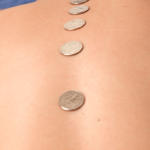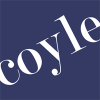 I was fortunate to have been able participate in roundtable discussions during the latter part of this year’s ISPA Conference in Washington, D.C. During the session, attendees were able to sit with colleagues and discuss relevant industry topics. I had a seat at a table focused on deals and promotions.
I was fortunate to have been able participate in roundtable discussions during the latter part of this year’s ISPA Conference in Washington, D.C. During the session, attendees were able to sit with colleagues and discuss relevant industry topics. I had a seat at a table focused on deals and promotions.
The savvy spa directors at the table had tried countless marketing strategies: events, memberships, point systems, SpaWeek and other promotional discounting tools. Many, however, still did not offer online booking and were surprised to hear results from the Coyle spa report indicating the public’s willingness to utilize this tool.
During the discussion on marketing, however, the hottest topic became how to retain consumers from events and discounting. Most of the spa directors had participated in SpaWeek. They reported that they’d done all the followup that spa consultants suggest, including interviewing SpaWeek guests and sending out followup promotions. After not getting the retention they had hoped for, some had concluded that these SpaWeek participants were just “not their customers.”
This coincides with reports that some spa directors have given us about other discounting programs (such as Groupon and Lifebook) that we’ve reported on previously. Interestingly, the spa directors in this ISPA roundtable had resigned themselves to using SpaWeek as more of a retention tool, offering promotions to their clients in advance and encouraging multiple bookings. Not a bad idea.
This led me to two questions: Can such promotions and internal events be used to target a spa’s actual target market? Are many spas just passively participating in these programs, saving all their planning for event followup?
I think the answer is yes in both cases. But if you want to attract the right kind of business, particularly in a down economy, you have to get out and market to the clients you want in your spa. This involves creativity and a lot of hard work.
In the case of SpaWeek, Groupon or an inside event or promotion, if the traditional marketing tools are not working, I suggest promoting to local businesses ahead of the event to advise them of what’s coming, inviting them first or as VIP’s. Then, focus on retaining those in your sweet spot by offering them targeted and customized deals. We already know your repeat customers are your best marketing tools, so reward these loyal clients if they bring someone new when they return for their first post-promotion treatment.
These deals, promotions and events are not one-size fits all, as any spa consulting company can tell you. But the following golden rules are always important:
Know your clientele: What are the attributes of your best customers and how do you get more of them?
Learn from peers: Join round tables, read columns by peers and call your colleagues to see what has and hasn’t worked for them. I came across this great piece in SkinInc by Elaine Sauer of Mario Tricoci Hair Salons & Day Spas, for instance, that provides valuable insights.
Develop a strategy: Hospitality consultants reiterate this point, time and again: have a plan from start to finish for each event.
Maintain Service Levels: Make absolutely sure that the deal-seeking consumer gets the same service he or she would on any given day in your spa. The best followup won’t be effective if the guest experience is not positive and memorable.













